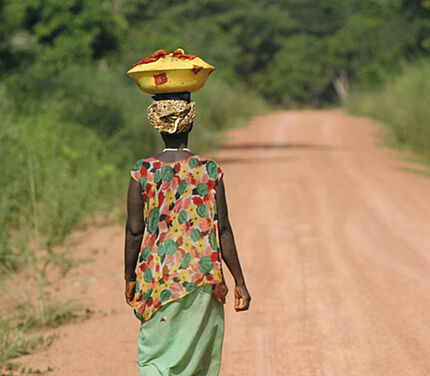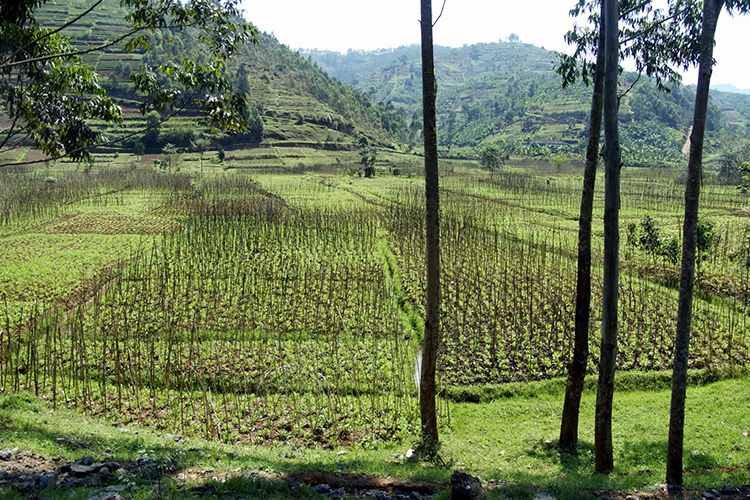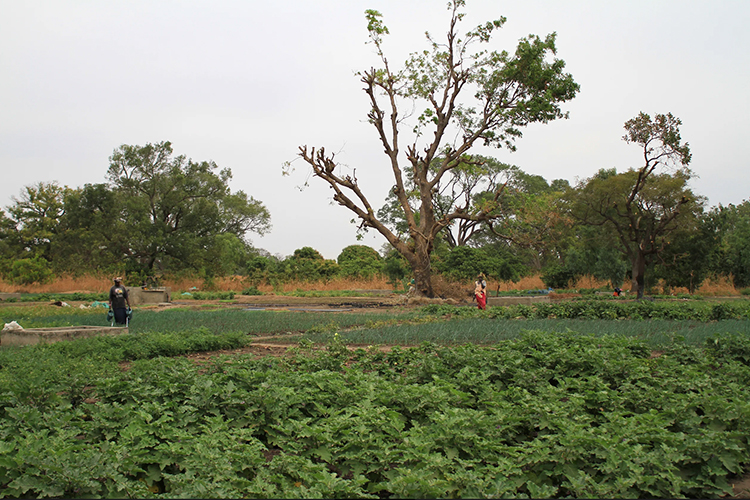AFRICA
Senegal
Area: 196,722 km²
Geography: Senegal is the westernmost country on the African continent. Its climate ranges from tropical, to hot and humid. The rain season (May to November) brings strong southeast winds and the dry season (December to April) is dominated by the hot and dusty harmatten wind. Mostly low, rolling plains that are rising to foothills in the southeast characterize the country’s terrain. Senegal is affected by seasonal floodings in the lowlands and also periodic droughts. (CIA, 2019)
Land Degradation: Many environmental issues influence the lives of the 1.8 million people, who are living on degrading agricultural land. Desertification and land degradation are among the main causes of low agricultural productivity in the country. Moreover, extreme weather conditions because of climate change aggravate the situation. Costs of land degradation for Senegal are about 996 million USD per year, which equals to 9 % of the country’s GDP. (UNCCD, 2018) (FAO, 2019) (UNCCD, 2018)
Sustainable Land Management: Senegal has committed to set a national voluntary Land Degradation Neutrality target, establish an LDN baseline, and formulate associated measures to achieve LDN. (UNCCD, 2018)

ELD ACTIVITIES
-
Case study 2019 (reviewed)
The ELD Initiative in close cooperation with its partners is conducting participatory research based on previous stakeholder consultations within the EU-BMZ co-funded project Regreening Africa.
ELD Case Study Senegal Synthesis Report (Fr) -
Note politique Sénégal 2019 (reviewed)
Cas d’études au Sénégal : Retombées économiques des investissements dans la gestion durable des terres dans quatre sites au Sénégal (fr)
-
Capacity Building (2017-2020)
Within the Regreening Africa project, jointly implemented with the World Agroforestry Centre (ICRAF), the ELD Initiative is conducting trainings on the total economic valuation of terrestrial ecosystems and their services. Trainings are complemented by practical exercises as part of research within the country
-
Study Report Kaffrine (2019)
Title: Les utilisateurs des terres de Kaffrine gagnent à investir dans des pratiques de gestion plus durables - Exemple du village de Daga Birame (Kaffrine, Sénégal) et sa plateforme d’innovation
Coordinateurs: Diaminatou Sanogo, Moussa Sall
Un rapport de l´Initiative ELD dans le cadre du projet « Inverser la dégradation des terres en Afrique par l'adoption à grande échelle de l'agroforesterie » (fr) -
Study Report Pata (2019)
Title: Économie de la dégradation de la forêt classée de Pata au Sénégal - Une forêt officiellement classée dont la mise en valeur agricole ne compense pas la dégradation de ses ressources
Coordinateurs: Katim Touré, Moussa Sall
Une étude de l’Initiative ELD menée dans le cadre du projet « Inverser la dégradation des terres en Afrique par l’adoption à grande échelle de l’agroforesterie » (fr) -
Study Report Kamb, Louga (2019)
Title: Remédier à la dégradation des terres dans la zone sylvo-pastorale du Sénégal - Étude de cas à Kamb, région de Louga
Coordinateurs: Samba Sow et Talla Gueye
Un rapport de l´Initiative ELD dans le cadre du projet « Inverser la dégradation des terres en Afrique par l'adoption à grande échelle de l'agroforesterie » (fr) -
Study Report Mbar Diop (2019)
Title: Économie de la dégradation des terres dans une région minière du Sénégal - Les effets économiques de la dégradation progressive des terres à Mbar Diop
Coordinateurs: Ibrahima Ndiaye et Mayoro Diop (ESEA)
Un rapport de l´Initiative ELD dans le cadre du projet « Inverser la dégradation des terres en Afrique par l'adoption à grande échelle de l'agroforesterie » (fr)


CONTACT
ELD Secretariat
E-Mail: info@eld-initiative.org
